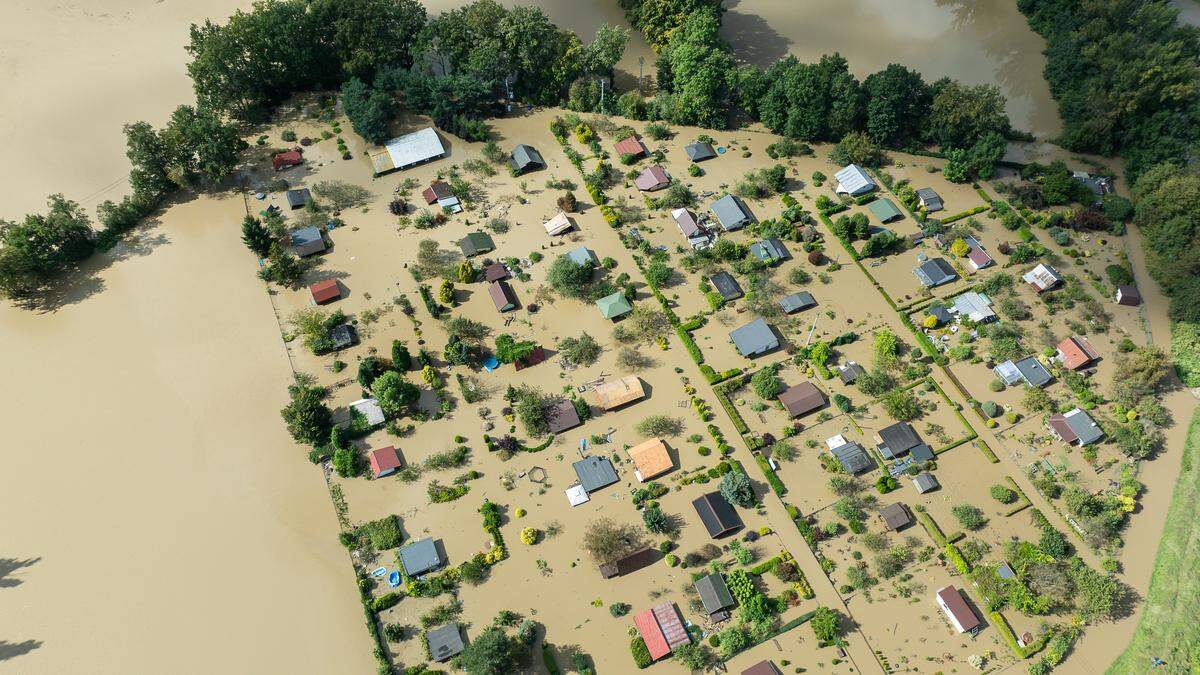Extreme weather events hit Europe hard in the summer of 2025, with heat waves, droughts and floods all having serious consequences for the environment and health, as well as for the economy.
The European Union is set to lose €43 billion in gross value added (GVA) in 2025, equivalent to 0.26% of its total output, as a result of the meteorological events of the summer of 2025 alone, according to a study by the University of Mannheim, carried out with researchers from the European Central Bank (ECB).
Also read:Extreme weather already cost Luxembourg over €1bn
Moreover, the full human and economic costs of such events only become apparent over time, given the many channels of impact, the researchers point out. “Beyond these short-term losses, the regional impact of extreme events historically increases over time, with substantial impact in the following years,” the report’s authors wrote.
The study estimates the European Union’s economic losses due to the summer of 2025 at €126 billion by 2029, representing a loss of 0.78% of GVA.
Greatest economic losses due to drought
The researchers looked at the regions specifically affected by droughts, heat waves or floods in the summer of 2025. As Luxembourg was spared those specific extreme events this summer, it was not included in the study.
Elsewhere, droughts in the summer of 2025 had serious consequences for agriculture and will have by far the greatest economic impact, with losses of nearly €30 billion for the EU in 2025, representing a 0.18% fall in GVA. That could rise to €76 billion by 2029, which translates as a 0.47% loss in gross value added.
The EU’s southern countries were the hardest hit by extreme drought. Spain will deal with estimated losses of €10.7 billion in 2025 (€27.6 billion by 2029), Italy with a €6.8 billion hit in 2025 (€17.5 billion by 2029) and France stands to lose up to €5.3 billion in 2025 (€13.7 billion by 2029).
Also read:Luxembourgers aware of climate change but not its solutions
However, Greece is the country most affected when taking losses in terms of GVA into account, with a 1.13% reduction in GVA in 2025 (-2.9% by 2029). Bulgaria is also expected to take a 1.06% loss in GVA in 2025 (-2.73% by 2029).
Heat waves in the summer of 2025 are expected to cause a loss of €6.8 billion in the EU in 2025, or 0.04% of GVA, and even €30 billion by 2029 (-0.19% GVA). France is the country hardest hit, with a loss of €4.8 billion in 2025 and up to €20 billion by 2029. This is the result of the combined effects of the heatwaves in June and August, with areas such as Languedoc-Roussillon among the hardest hit in Europe.
Spain, with a loss of €1.5 billion (more than €7 billion by 2029) and Italy, with an impact of €500 million (€2.6 billion by 2029) were also seriously affected.
Flooding also hits northern countries
Economic losses due to flooding will amount to €6.5 billion in 2025 and €20.2 billion by 2029. The impact will be greatest in Italy (€4.6 billion in 2025, €14.2 billion by 2029), but also in more northerly countries such as Germany (€731 million in 2025, €2.3 billion by 2029) and Austria (€443 million in 2025, €1.4 billion by 2029), which are increasingly affected by such disasters.
While the study assesses these economic losses “in near real time”, its aim is to make up for the fact that such estimates are generally time-consuming and subject to delays, “which can hamper an effective policy response”, the authors say.
A ‘cautious’ assessment
However, the researchers warn that “considerable uncertainty surrounds these estimates.” They consider their assessment to be “cautious” as many criteria were not included in the study.
For instance, the impact of forest fires, which hit Europe hard during the summer, was not taken into account, nor was the indirect economic impact on unaffected areas, or the consequences for food prices. They are therefore calling for further research to refine their results.
(This article was first published by Virgule. Translated using AI, edited by Duncan Roberts)
